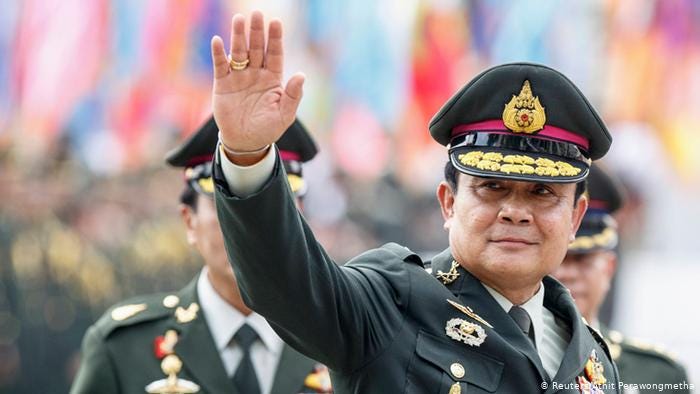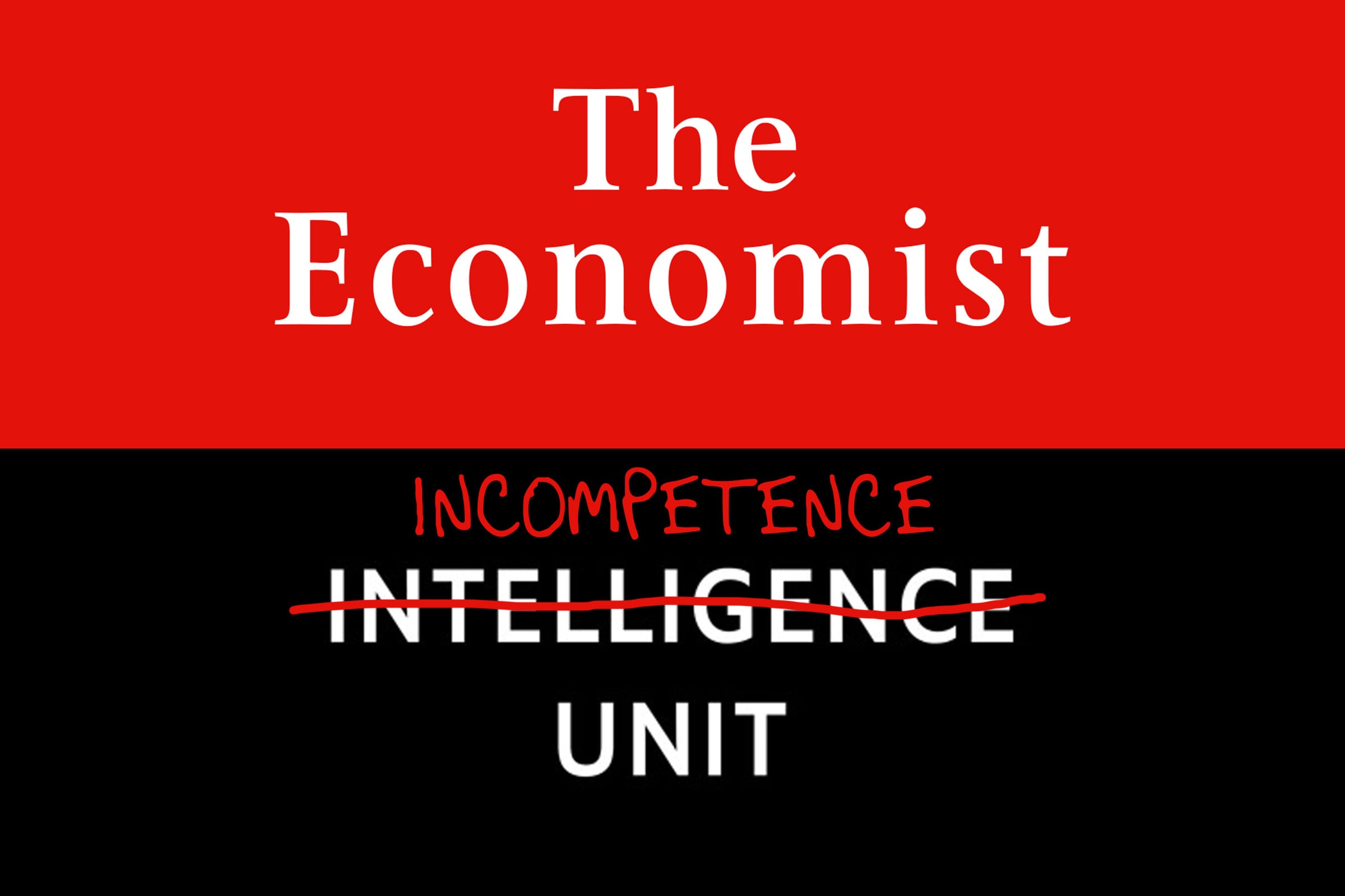So, yesterday we had a few laughs about the Economist Intelligence Unit ranking Singapore below Thailand or Malaysia in pandemic preparedness on the eve of the worst pandemic in a century in late 2019.
But, to be frank, it's no laughing matter.
This sort of misinformation not only is a waste of time and money for everyone using it to make business decisions but it also undermines trust in governance in countries unjustly marked down by the unelected, incompetent people who have appointed themselves as arbiters over entire nations.
The media exist to provide information to the public, but what they have morphed into are conglomerates of misinformation for partisan, often profit-driven purposes.
The accuracy of opinions or predictions doesn't matter. People who have continuously been wrong about things they talk about are still given space and their past blunders don't seem to affect their employability or "expert" status (look to one post before the last to read about Ms. Bridget Welsh, an "astute" expert in Southeast Asian affairs, fawning over Mahathir's new government in 2018 and how it makes Singapore look outdated).
Paul Krugman, the "economist" who compared Singapore's economic model to Stalin's Soviet Union, who dismissed the internet as a fad having an impact no greater than the fax machine, who predicted the Eurozone would collapse in the aftermath of the 2008 meltdown and who consistently preaches that the world simply isn't deep in debt enough - has not only managed to keep his NYT column for years but also won a Nobel Prize in the meantime (and in 2011, a survey of economics professors named him their favourite living economist under the age of 60...)

And yet, the big media outlets regularly publish opinions or analyses of people who are quite consistently wrong and even have organized - like the Economist - entire divisions of their businesses, devoted to churning out research products that are equally wrong but which thousands of companies are investing in and millions of people treat as authoritative sources.
The EIU - Economist's "Intelligence" Unit is quite notorious for its many "rankings", which aim to quantify things that are hardly quantifiable, trying to order countries in lists which seem to be more in line with a predetermined agenda rather than facts.
Their monumental blunder with the pandemic preparedness ranking, which had the US and UK rank at the very top, and Singapore lagging behind at 24, outranked by neighbouring Malaysia or Thailand (now badly hurt by the recent outbreaks), should draw our attention to many of the other claims that they keep making. Let's see if they make any sense at all or whether they are as utterly worthless as the one we roundly laughed off yesterday.
Let's take their Democracy Index - not something you can really credibly quantify. The list is led by the Scandinavian countries, New Zealand, Canada, Netherlands etc.
Things get a bit more interesting when you move down. Singapore is ranked.... 74th, one below Thailand.
Yes, Thailand, the country ruled by an ex-general who seized power in a coup in 2014 and proceeded to change the constitution 3 years later while driving political opponents out of the country.

It is supposedly more democratic than Singapore, where the ruling party has held power in free and fair elections ever since the independence of the country in 1965, whose legal and legislative systems are among the world's most stable and trusted in the world.
Singapore is also outranked by Mexico in 72, where 91 politicians, including 14 candidates, have been killed since September 2020 in the run-up to the midterm elections in the country held on the 6th of June.

Apparently, political assassinations, corruption and chaos are totally better than the peaceful, competent governance of one party which has secured public support for 55 years...
EIU ranked Singaporean democracy lower than several African and Latin American countries, Papua New Guinea, Indonesia (I'm sure Ahok would like to have a few words about this) and, lo and behold!, MALAYSIA, which took the 39th spot not only higher than Singapore on 74 but higher than some EU countries (like Poland, on 50th).
Yes, the country whose government collapsed in rather questionable circumstances halfway into its term, where cronyism and corruption remain widespread, where gerrymandering (giving a stronger vote to rural Malays) or racial discrimination by law have not been addressed, where it took a royal pardon to get one of the opposition leaders out of jail, is totally more democratic than Singapore.
But people read this from a seemingly authoritative source like the Economist and start believing the lie that their lives are somehow worse than they really are.
The same goes for another ludicrous list published by the unit - the global cost of living, which regularly places Singapore near the top, even though the ranking started as (and remains, though currently this information is muted) as a tool for calculating living costs for expatriates. It assumes ridiculous things like eating a fillet mignon, going to the opera X times a month, or owning a car (which you don't need in SG), among other things, and then claims to accurately compare the costs of life between different cities.
The Economist no longer openly mentions who the product was designed for and what it is supposed to do, clearly because it drives more traffic to its misleading publications when it is simply portrayed as a general comparison of the costs of life in different cities.
In reality, Singapore is easily one of the most affordable major cities on the planet - particularly for the locals.
Food, public housing, and healthcare services are remarkably cheap for a big, developed metropolis. Education is largely subsidized too. Low GST compared to high VAT in Europe makes many products cheaper in Singapore than in the West, while restaurants or cultural events are not more expensive.
Private accommodation, car ownership and alcohol are definitely on the high end - but none are necessary for most.
But, again, people are reading this and begin believing their lives are relatively worse than they would be elsewhere when it's exactly the opposite.
Few have sufficient international experience to know that whatever the Economist publishes is not only not true but so far from the reality that it's absolutely laughable that anybody gets paid for publishing (or even selling!) this "research".
Of course, they keep getting paid and the companies keep publishing these and other "findings" because it's profitable. It works as a corporate product they can charge thousands of dollars for and it works as content driving clicks, engagement and subscriptions from readers.
Even if none of it is true.
In other words, mass media keep expanding their influence as an elite overclass, unelected and virtually unchecked, deliberately (or incompetently) misinforming millions of people for little else other than their own gain, undermining good governance in well-performing countries in the process, swaying political sentiments in the process.
Not only are they not reinforcing the democratic order, but they are systematically destroying it since accurate information is necessary for voters to make educated decisions during elections.
How can they, if there is no integrity or basic decency even in the "authoritative" sources?





